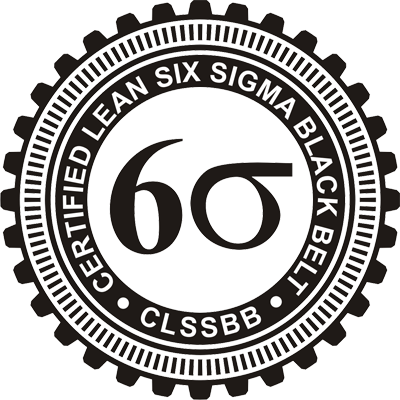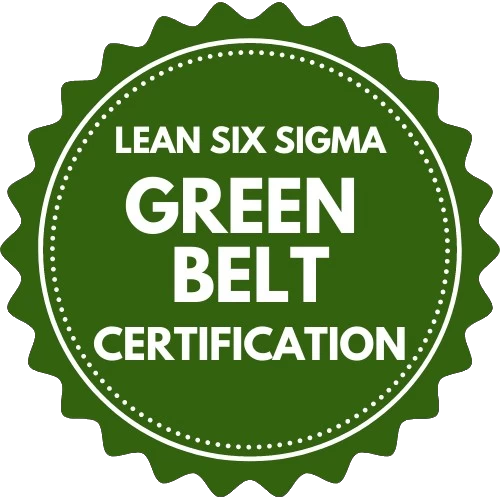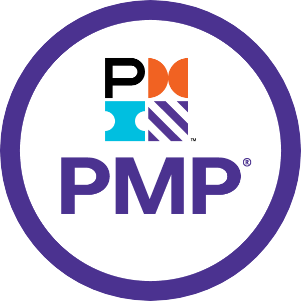6-Hour Workshop on Statistics for Process and Quality Control

This 6-hour workshop includes a presentation of the steps and techniques used to quantify variability in manufacturing processes, and to assure quality products. All processes exhibit intrinsic variation. However, sometimes the variation is excessive and this hinders the ability to achieve reliable measurements and desired results.
Statistical process control (SPC) and statistical quality control (SQC) allow us to control the functions of our processes (input) and the quality of our product (output) by providing tangible tools for monitoring and testing.
The concepts and information presented will be mainly concerned with statistical process control: obtaining monitoring information (data) that is objective, unbiased, and useful for decision making.
Process and quality control are important for a company’s reputation. A good system of processing and quality checks reduce costs associated with production waste and re-work due to defects, and allows a company to deliver products that are high in quality. Many industries are also required to have a good quality management system in place to achieve compliance with regulatory authorities.
The objective of the seminar is to provide information that can be used immediately by personnel involved in production operations, and by supervisors and management in decision making. Although the presentation involves use of statistical techniques, presentation of statistical theory will be limited to only what is needed by the attendees to understand and implement processes and monitoring tools within the statistical framework.
Presented examples will include an emphasis on the manufacturing processes and quality assurance needs of product in the medical device and pharmaceutical industries.
Process and quality control are constantly evolving. Therefore, historical concepts, current trends and regulatory requirements will be discussed. The presentation of statistical charts and analyses, graphical techniques for planning, trouble-shooting and problem solving will also be presented. Minitab statistical software will be used to demonstrate data collection and input, and how to build and interpret various process control charts for both attributes and variables data. The seminar will also include the use of Minitab to develop attributes and variables sampling plans for quality assurance and acceptance. A handout and dataset will be provided to attendees so they may work hands-on with the information presented in the seminar.
- Quality assurance (QA) engineers
- Quality control (QC) engineers
- R&D engineers
- Process control personnel
- Manufacturing/Industrial personnel
- Manufacturing/Industrial personnel
- Production supervisors
- Management personnel of processing facilities
It’s a System! Elements of Quality Management
- Deming 14 points for total quality management
- Dr. Ishikawa, seven quality control tools (7-QC) and supplementals (7-SUPP)
- Pareto principle (80/20 rule)
- Shewhart (Plan, Do, Study, Act)
Regulatory Requirements in Quality Management
- FDA Quality System Regulation (QSR)
- ISO 13485:2016
- IS 9001:2015
- Harmonization of regulations with FDA guidance/regulations
Statistical basics
- Descriptive and Graphical Techniques
- Histograms
- Scatterplots
- Pareto charts
- Cause and effect (fishbone) diagrams
- Defect concentration diagrams
Statistical Process Control: The ABC’s of Control Charts
- Elements of a control chart
- Control Charts for Discrete Data
- c chart
- u chart
- p chart
- np chart
- Control Charts for Continuous Data
- X-bar chart
- R chart
- I chart
- MR chart
- Combined charts (Xbar-R, I-MR)
- More Control Charts
- Classical Shewhart control charts
- Cumulative Sum (CUSUM) charts
- Exponentially Weighted Moving Average (EWMA) charts
- Hotelling (multivariate) control charts
Statistical Quality Control – Attribute Sampling Plans
- C= 0 /Zero Acceptance
- Single sample plan
- Double-sampling plan
- Multiple sampling plan
- Sequential sampling plan
- Skip-lot sampling plan
Statistical Quality Control – Variables Sampling Plans
- Sampling size and critical distance
- Known vs. unknown standard deviation
- One or two specification limits
- Using ANSI Z1.9
All processes exhibit intrinsic variation. However, sometimes the variation is excessive and this hinders the ability to achieve reliable measurements and desired results. Statistical process control (SPC) allows us to control the functions of our processes (input) by providing tangible monitoring tools.
Process control is important for a company’s reputation. A good system of processing and checks reduces costs associated with production waste and re-work due to defects, and allows a company to deliver products that are high in quality. Many industries are also required to have a good process management system in place to achieve compliance with regulatory authorities.
This seminar will provide attendees with the statistical tools necessary to monitor processes to ensure the quality of manufactured products. Ms. Eisenbeisz will take use of Minitab software in her presentation.
Speaker Profile
Elaine Eisenbeisz is a private practice consultant based in Southern California. She has over 20 years of experience in creating data and information solutions for industries ranging from governmental agencies and corporations, to start-up companies and individual researchers.
In addition to her technical expertise, Elaine possesses a talent for conveying statistical concepts and results in a way that people can intuitively understand.
Elaine’s love of numbers began in elementary school where she placed in regional and statewide mathematics competitions. She attended University of California, Riverside, as a National Science Foundation Scholar, where she earned a B.S. in Statistics with a minor in Quantitative Management, Accounting. Elaine completed her graduate certification in Applied Statistics with Texas A & M University. Gig ‘em Aggies! Currently, she is finishing her graduate work in Applied Statistics at Rochester Institute of Technology.
Elaine is a member of The American Statistical Association as well as many other professional organizations. She is also a member of the Mensa High IQ Society. Elaine is also a member in good standing with the Better Business Bureau.
Current areas of interest include Bayesian inference, simulation and bootstrapping techniques, and predictive modeling.
When she isn’t crunching numbers you can find Elaine digging in her garden, playing her violin, cooking, or playing board games with friends.
Newsletter
Email us, receive newsletter brouchers and webinar related
Any Queries
Call us and Mail us hear back from our webinar representative






